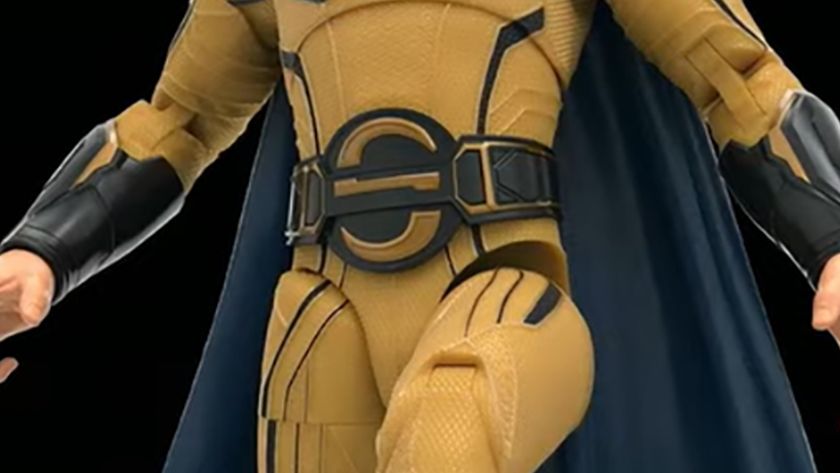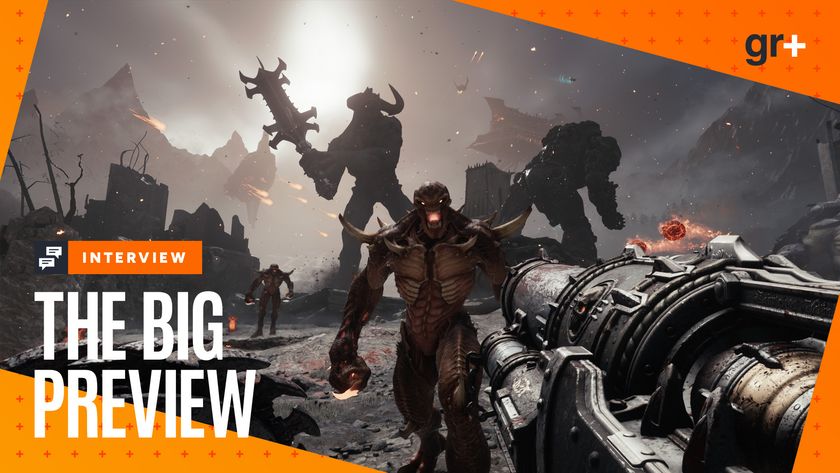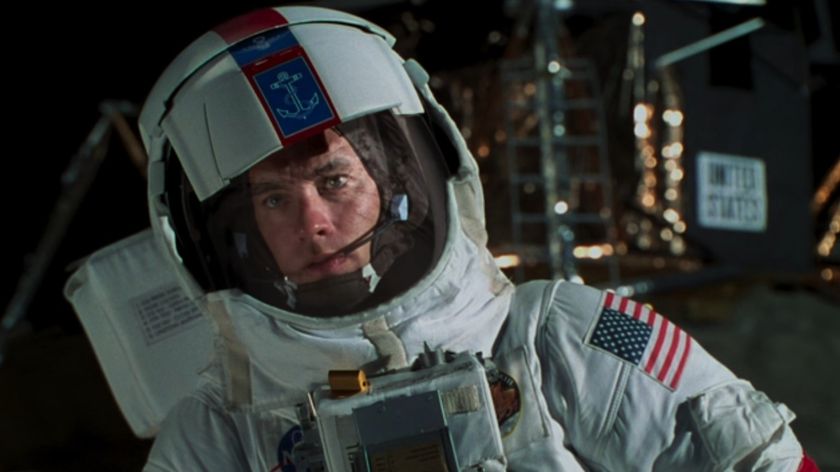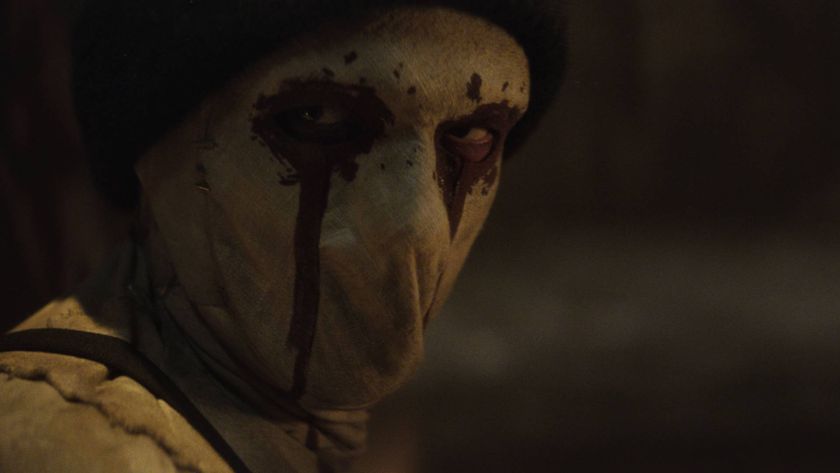Across the Spider-Verse composer on missed Easter eggs and why the third film will be even more complicated
Exclusive: We speak to Spider-Man: Across the Spider-Verse’s composer Daniel Pemberton about why audiences are so absorbed in finding details in his score
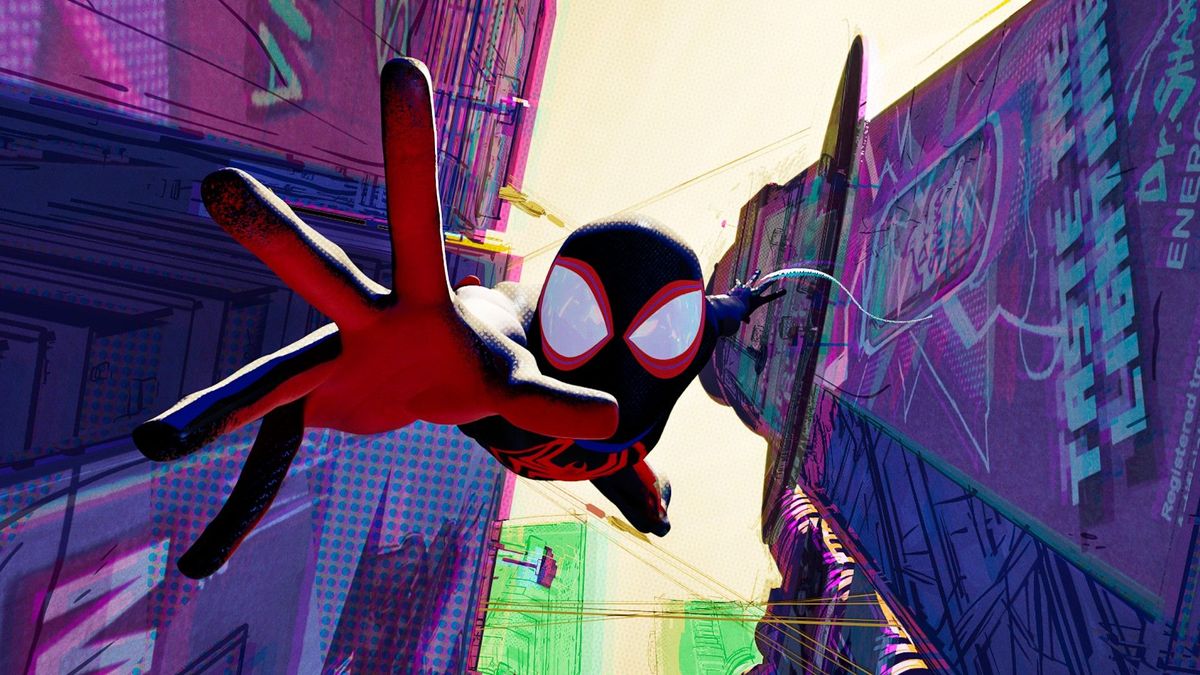
It’s hard to remember a time when the Spider-Verse movies didn’t have the kind of popularity they do now. But the franchise’s composer Daniel Pemberton – who’s also behind the scores of hit movies like Enola Holmes, Birds of Prey, and Yesterday – tells 12DOVE that there was a period when he really had to convince people to watch it.
"What was funny about doing the first film was no one seemed to really care about it," he laughs when GR+ speaks to him from his studio over Zoom. "I remember thinking, 'This is one of the most special movies I've ever worked on.' And I would tell people, 'Oh my god, I'm working on maybe the best project I’ve ever worked on.' 'Oh, what is it?' 'It’s Spider-Man.' 'Oh, another Spider-Man film?' And you’d see their interest just disappear."
The build-up to the worldwide phenomenon the franchise is now was slow after its release too, with Pemberton saying it took a while for his friends to "discover" it. It’s a polar difference to now, as we speak in the aftermath of Across The Spider-Verse’s commercial and critical success that’s translated into an impressive home release and a new global tour of the score (more on that later). And one thing is very clear: the composer couldn’t be prouder of the film.
Detective work
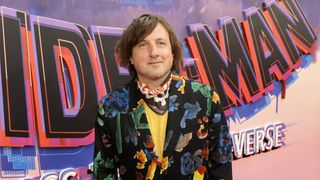
After helming the score on the first film, Spider-Man: Into the Spider-Verse, Pemberton says he was a bit more sure about what an undertaking the sequel would be. But that didn’t stop the task from being pretty colossal, especially because he worked mostly alone to create the score, which required an intensive workload.
According to the composer, his "entire life was just working on that movie every day". He’d get up, go for a run, swim, and then spend his day at Sony until 1am. Then repeat. "It's a bit like being a detective who's got all the pieces and they’re trying to put them together, but no one else can see in your head or understand what you're doing," he explains. "But then hopefully, they do when they finally experience the movie."
Thankfully, unlike the early days of the first film, Pemberton now gets to see just how much people appreciate the work he put in thanks to the very dedicated – and very online – fanbase. Since its release, they’ve been doing everything from pouring over tiny details to find clues about the plot to making TikTok remixes, which makes him smile when I bring it up, admitting it’s pretty "insane".
"There's loads of hidden stuff in the score and what's amazing is there's some stuff they found and I'm like, 'Oh, wow, okay, cool.' Other things, 'No, I didn't mean that to happen, but if that's what you think happened, cool, I love it,'" he says.
Sign up for the Total Film Newsletter
Bringing all the latest movie news, features, and reviews to your inbox
There are a lot too that people have spotted (including a neat Easter egg regarding the Prowler) and plenty of callbacks between the first and the second movie. But intriguingly, Pemberton reveals there are a few more tidbits that are yet to be discovered.
"There are really subtle things like the noise that represents the Spider-42," he explains. "You hear it in the very first film and when you see it in this film, you hear the same noise. It’s a synth noise, it's not a big deal at all, but every time that spider pops up, that sound is the sound in the first film. So when you're in Spot’s lab and he sees it, you get the same noise."
Another is what he calls the "multiverse fog", continuing, "The very first sound you hear in the very first film, it's also the first sound you hear in a second film. Then when Miles is learning about the multiverse and realizing what that's doing, we're using the same sound again, and that’s the first time we hear it in the score. It’s all weird shit like that." Might it be time for another rewatch?
Superhero fatigue
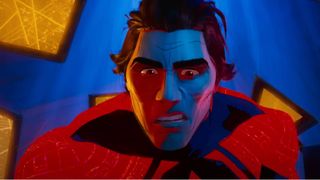
While many of these hidden details may seem like quite simple callbacks to Pemberton, the fact that fans pour over moments like this seems to be an indication of modern movie-making. "I think a lot of these big films, behind-the-scenes on music, actually become like industrial factories with a lot of different people writing the music," he says.
"On Spider-Verse, I'm on top of every note so I think there's a connectivity that is sometimes lacking in a lot of blockbuster movies. And because of the way the superhero genre has been thrown between so many different directors, so many different composers, there's often not a continuity between characters, between story ideas, and we get that in Spider-Verse where we do actually have all these things connect. It's been quite eye-opening to see how surprised a lot of young film fans have been at the use of themes for characters."
Still, he hopes, successes like Spider-Verse mean things are looking up, especially after (mostly) original ideas in 2023 blockbuster films like Barbie and Oppenheimer too. In the composer’s mind, this shows people are trying to do something new and fresh in the movie theaters.
"A lot of films became about reheating emotions and scenes you'd experienced before so I think the hit was getting less for people," he adds thoughtfully about this topic. "I've always been about, with any score I do, you want to go into that cinema not knowing what you're going to get. It's going to be a surprise. Spider-Verse is probably one of the most extreme examples of that, like, 'Okay, get ready to get ready for something that you've never heard before.' Although, it’s going to make the next film even more fucking complicated." Oh yes, that next film…
Going Beyond

The third – and final – part of the Spider-Verse trilogy already has some big questions around it. Called Spider-Man: Beyond the Spider-Verse, it was initially due to hit theaters as early as March 2024, but has now been delayed indefinitely amid ongoing WGA and SAG-AFTRA strikes halting most Hollywood productions. When GR+ tentatively asks where he’s at with it, Pemberton has a quick response.
"Don't talk about it," he laughs. "Everyone in this film, there’s a sort of pact, no one will talk about the next film because we're all still in recovery from the second one." It seems like we’ll have to wait with bated breath on that one then, but what he can speak about is some exciting things currently happening for fans, including a tour of the Into the Spider-Verse soundtrack, which has been traveling around the US before heading overseas.
Then there’s also the recent release of the Across the Spider-Verse album, which has some extra tracks on it that weren’t used in the final cut of the movie. Pemberton is keen to confirm that these weren’t so much from deleted scenes, but just moments they decided to tackle differently. For instance, one track called 'Chelsea, NY, Earth-65' was written for the first time we see Gwen again, but in the final film, they decided to switch it for 'Self Love' by Metro Boomin.
"There'll be multiple different approaches on pretty much every scene in the movie," he explains. "The directors and the producers and the writers, they want to try everything out and they're always pushing how to make the movie better. As a result of that, you end up writing a huge amount of music that just ends up in the bin, but I'm used to that as a composer."
He adds, "If you want to push the boundaries, you get prepared to fill the bin up with the stuff that doesn't work or could be better." And apparently, there’s loads more where this came from too, as the composer reveals they could probably even release a 10-CD box set of unreleased demos one day.
The experimental nature of Spider-Verse also means that while he might not be ready to talk about Beyond yet, he’s got some ideas of what else he wants to work into it. Of course, he’s not ready to give away any of those secrets yet, but Pemberton will say it’s an extremely fun world to play in.
"I feel it's the most honest version of me," he says of working on this franchise, "It's just taking every influence I've had in my life, and then trying to put them into a film score. What's always fun with these films is it's such a broad canvas, you get to play in all these different worlds all the time. It's very intense and it's a very exhausting film score to work on because it is so complicated, but I think it's great to push yourself so you get those moments that don't feel like anything else."
Spider-Man: Into the Spider-Verse Live in Concert is on tour around the US before going to the UK in October, tickets available at Ticketmaster.co.uk. Spider-Man: Into The Spider-Verse and Spider-Man: Across The Spider-Verse are available to purchase digitally now, alongside their soundtrack score.
For more on the movie, check out our guide to all of the Spider-Man: Across the Spider-Verse Easter eggs and our round-up of all the Spider-Man: Across the Spider-Verse cameos.

I’m the Deputy Entertainment Editor here at 12DOVE, covering TV and film for the Total Film and SFX sections online. I previously worked as a Senior Showbiz Reporter and SEO TV reporter at Express Online for three years. I've also written for The Resident magazines and Amateur Photographer, before specializing in entertainment.

